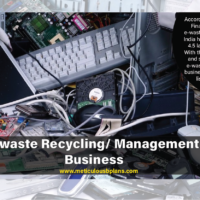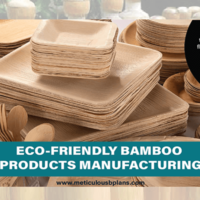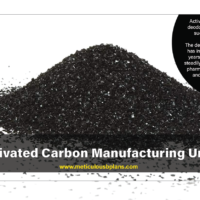₹4,999.00 – ₹71,999.00
| Image | Variation | SKU | Price | Stock Status | Quantity | Add To Cart |
|---|---|---|---|---|---|---|
 |
Business Feasibility Study Report(BFSR) | ₹19,999.00 | instock |
|
Add to cart | |
 |
Business Modelling(BM) | ₹4,999.00 | instock |
|
Add to cart | |
 |
Business Plans(BP) | ₹59,999.00 | instock |
|
Add to cart | |
 |
Detailed Project Report(DPR) | ₹49,999.00 | instock |
|
Add to cart | |
 |
Business Feasibility Study Report(BFSR) + Project Report(PR) | ₹62,999.00 | instock |
|
Add to cart | |
 |
Business Feasibility Study Report(BFSR) + Business Plans(BP) | ₹71,999.00 | instock |
|
Add to cart |
- Description
- Additional information
- Business Feasibility Study Report
- Business Modelling
- Business Plan
- Detailed Project Report
Description
Solar thermal energy is extracted by concentrating solar energy on harvesters for a longer period. Unlike photovoltaics modules, solar thermal is not applied commonly for residential or commercial building power generation. Solar thermal, however, has a tremendous potential to produce solar power on a utility scale.
The energy harvesting process of Concentration Solar Power (CSP) is inherently different from solar photovoltaics. In CSP, sunlight is directed using mirrors and then concentrated at a single point. The concentrated optical energy is then used to boil water and generate high-energy steam. The high-energy steam then turns a turbine generator to produce electricity. Steam-powered generators are a very established technology to generate electricity that is used by all traditional power plants, including coal, natural gas, and nuclear power plants. The inherent difference between solar thermal and traditional power plants is that CSP uses renewable energy input to generate steam.
Unlike the photovoltaic solar panels that are common on the roofs of homes and commercial buildings, solar thermal technology concentrates the sun’s rays to boil water and generate steam. Solar thermal systems are a way to satisfy heating needs by capturing the thermal energy of the sun for heating applications such as buildings, hot water or swimming pools. Currently, a tremendous amount of energy goes into traditional heating applications that could be satisfied by solar thermal power. Solar thermal, also known as concentrating solar power, or CSP, is land-intensive, requires access to transmission lines and can be built in the desert.
In contrast to the small-scale solar water heating systems, the megawatt-scale solar supported district heating systems and industrial applications have gained increasing interest all over the world in recent years and several ambitious projects have been successfully implemented. Solar energy has become one of the most stable sources of clean energy. The global solar thermal energy industry is expected to reach around 80 TWh by 2023 from 36 TWh in 2018.
The solar thermal energy industry is expected to increase in coming years, and it is still open for new products innovation and new services. Thought of starting an innovative business should be to go into solar thermal energy.
Additional information
| Weight | N/A |
|---|---|
| Select Report Type | Business Feasibility Study Report(BFSR), Business Modelling(BM), Business Plans(BP), Detailed Project Report(DPR), Business Feasibility Study Report(BFSR) + Project Report(PR), Business Feasibility Study Report(BFSR) + Business Plans(BP) |
Business Feasibility Study Report
The Business Feasibility/ Viability Study is performed to support the decision-making process based on a cost-benefit analysis of the business. It is an analytical tool that helps suggest, and shows limitations about the solar thermal energy industry, and also assists in determining the project viability. This report is prepared as an initial guide for the business persons who want to start a business in the solar thermal energy industry. This report will answer all the project related questions and explain all the facts. The main inclusions of this report are cost analysis, market insights, location analysis applications, and legal facts. It also includes a briefing summary of the ROI, BEP, and life-cycle cost analysis.
Report Highlighting Point:
- Business Feasibility: Study of Micro and Macro elements of the Business.
- Market feasibility: Includes Market Insights, Market Potential for the Product and/or Services, etc.
- Technical and Financial Feasibility: List of Plant Machineries/ Equipment, Laboratory Setup, Calculations on Operating Cost, ROI and BEP.
- HR and Infrastructural Feasibility: Location, Building, Utilities, Manpower Requirement, etc.
Business Modelling
Business Modelling is one of the most essential and differentiating steps in Business Planning. This report enlists the most sustainable, potential, profitable business models for Solar Thermal Energy Industry, and it will explain those models one by one in a simplified manner. The other highlighting points for this Business Modelling Report are overall views upon;
- Size and Potential
- Target Markets
- Legal details
- Costing and Pricing
Furthermore, it serves the purpose by explaining who your customer is, what value you can create/add for the customer and how you can do that at reasonable costs.
Report Highlighting Point:
- Business and Concept
- Market Research and Analysis
- Feasible Business Models
- Budget Calculation for Each Model
Business Plan
A business plan is a document which describes the overall business, its products or services, revenue model, strategies, human resources, financial analysis, operations model, and other details that are essential for the success. A good business plan can go a long way and help reduce the odds of failure. It serves as a road map that provides direction to the business.
Lots of inventions are propping up in Solar Thermal Energy industry due to favorable market and growth rate. Whereas preparing an effective business plan demands comprehensive knowledge from different business discipline. (production and operational plan, SCM plan, sales, and marketing plan, administrative plan, etc.)
Our business plan will guide you to choose
- The best fitted model and help you determine goals and areas.
- Details of every department of business.
- To raise money for business
Report Highlighting Point:
- Elevator Pitch
- Business Overview: Market Dynamics, Market Size, Market Potential, Strategic Analysis using Porter’s Model, PESTLE Analysis, SWOT Analysis, BCG, ETOP Analysis, etc.
- Project Details: Company Description, Goal Setting, Legal Requirements, Production Process, Logistic and SCM, Sales and Marketing Plan, etc.
- Financial Analysis: Includes Capital Budgeting, P&L Statement, Balance Sheet, etc.
- Business Projections over 5 years
- Milestone and Timeline Planning.
Detailed Project Report
A Project Report for the solar thermal energy industry is a document which will provide you details on the overall picture of the proposed business. A Detailed Project Report is nothing but the absolute informative document which will help you gain all the knowledge and help you explain the project to all the stakeholders. It shows details obtained from Economic Analysis, Technical Analysis, Financial Analysis, Social Analysis, Managerial and Production/Technological aspects of the solar thermal energy industry for your project.
It initially serves the purpose of obtaining
- A detailed roadmap of business.
- Financial help from the right institution with ease.
- Thorough information from various areas for the unilateral fulfillment.
Report Highlighting Point:
- Project Details: Pre-requisites, Project Implementation Plan, Mech-Structural Plan, Sales and Marketing Plan, Manufacturing Process Flow Chart, Personnel Requirement.
- Financial Analysis (5 years): Capital Budgeting, Financial Ratios, etc.





